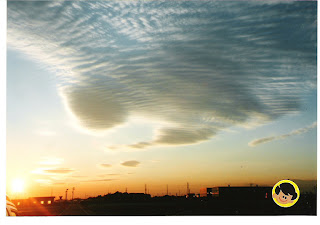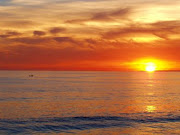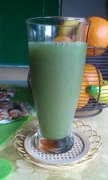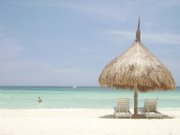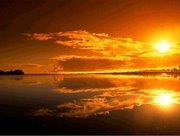Tadao Hori, a professor of psychophysiology at Hiroshima University, who is a leading expert on the science of sleep, shared his insights on questions such as
"when is the best time to get up?" and other matters related to sleep and health in an interview by a leading Japanese broadsheet.
*A. Is getting up early really good for you?In principle, it is. But it is not good if you have to cut your hours of sleep to get up early. Our bodies are designed to awaken with the sunrise. Our temperatures go down as the sun goes down, making us sleepy. Our body temperature hits its lowest at around 4 or 5 a.m. It is said that people feel best when they get up as their temperatures start rising.
B.*Recent studies have shown that a gene determines whether someone is a so-called lark or an owl.The recent findings are very interesting, but scientists have yet to determine to what extent genes regulate human lives. In other words, genes are not everything that controls us.
C.*Is it true that getting up early makes us more creative?
You could say so if you combine various different factors. If you get up late and hurry to work without having breakfast, you have a foggy mind and you are short of energy. That would not make you more productive than getting up early and calmly preparing for work.
D.* Is there a scientific basis for the popular saying in Japan that sleeping from 10 p.m. through 2 a.m. makes your skin smooth?Actually, that's more of a conventional wisdom than anything else, but it's true that human bodies start to need sleep from around 10 p.m., when their temperature starts decreasing. If you go to bed later than that, you will be awake that much longer and that is an added burden to your body. It is scientifically proven that, if you go to bed at 10 p.m., you are likely to get a deeper sleep. If you sleep well, your body will produce more growth hormones and your metabolism will improve, which would also help you to defy aging. But young people in general can sleep well even if they stay up late. It is people over the age of 35 whose skin starts to show the effects of an unhealthy lifestyle.
E.* Why do the elderly tend to sleep less? Why do many of them get up early?It's not that older people enjoy being like that; they would rather sleep longer, but they are no longer able to do so. Sleeping for eight hours straight means the sleep-control system in the brain is also young. With older people, the ability to control sleep declines, and their sleep is more shallow. Likewise, they go to bed early because they are exhausted. Because it is demanding for them to stay awake for 16 hours, older people often become sleepy at around 8 p.m. and fall into sleep temporarily, but they wake up shortly afterward and then they have a hard time going back to sleep later in the night. So I recommend them to take a 20-minute or 30-minute nap during the day. Then they can regain their energy.
F.* What's the best way for people to get a deep sleep?
If you take a walk two or three hours before you go to bed, your temperature will rise by 1 degree or so. After that, as your temperature goes down, you should hit the bed, because you will sleep better that way. Old people, on the other hand, retain their temperature for a longer period, so if they take a brisk walk a couple of hours before that, say at 5 or 6 p.m., they will cool down at around 9 or 10 p.m. and feel more able to sleep.
G.* According to a 2005 report by market research firm A.C. Nielsen, 41 percent of Japanese people manage six hours or less sleep per night, making them the most sleep-deprived nationality in the world. Why do you think that is?
What we know is that Japanese people often stay up for no particular reason; the times they start work haven't changed much over the years. They come home and idle their time away and then they don't feel like going to bed until past midnight. Then they get up at 6 or 7 a.m., so they sleep for only about six hours.
H.* You think this is not a good trend?
We think not. Almost everyone we interview says, ideally, they would rather sleep at least one or two more hours. Also, many people try to "tank sleep" on weekends by sleeping longer. They tend to think that, because they have slept longer on the weekend, they can sleep less the following week. But they are wrong. If you sleep longer on the weekend, it means you are paying back for your deprived sleep the week before.
I.* What's the basis of the idea that we should sleep for eight hours a night?There is none. But if you look at how much people sleep around the world, you will realize that they sleep an average of a bit more than eight hours. People whose answers are negative to such questions as "Do you feel you are not sleeping enough?" and "Do you wish you slept more?" mostly sleep for eight hours. There is a group of people categorically called "short sleepers" who are fit and happy with less than six hours of sleep per day, but they make up less than 10 percent of the entire population.
J.* So does the amount of sleep required vary from person to person?Yes it does. Some people become neurotic if they don't feel they have slept enough — saying they are only sleeping 7 1/2 hours, not eight hours. They feel they must sleep for eight hours exactly. But that's not how it works.
K.* We say we feel refreshed when we breathe in the morning air. Why is that?
Morning air is cooler, so that might be one reason why we feel refreshed. We don't know if the air is really cleaner in the morning, or if we are actually breathing in more dust because it has come down and settled during the night. But
morning sunlight contains more blue and green light, which is known to make people feel awake. And the morning light sets your biorhythms. If you open the window of your room in the morning and let the outside air in, instead of breathing indoor air that you have breathed out, you will feel better. In addition, as the sun comes up its light gets more intense, so you will find it too glaring to be comfortable.
Plus, if you wake up feeling good and look out the window, everything will appear beautiful. It might be a psychological effect, but it's actually very important.
L.* Why does eating a big breakfast make you less fat than eating a big dinner?
Because you don't move much after dinner. You should
eat at least three hours before you go to sleep, because the bowel movements stop when you are sleeping and the food would sit heavy on your stomach. Even if you eat more than three hours before your bedtime, your body will try to store the consumed calories as fat because you don't need to burn them during the night.
In the morning, by contrast, you need a lot of energy, because you have been fasting for the previous eight hours or so, and your brain — which is the first thing that needs energy in the morning — needs sugar.
M.* What should people have for breakfast?
Fruit sugar and honey are good because they give energy to the brain. But that doesn't mean you should have candies for breakfast. You also need fat and protein as sources of your energy. The traditional Japanese breakfast — consisting of rice, miso soup and fried fish — is also good because it allows you to take in a lot of calories.
*************************************************************************************


